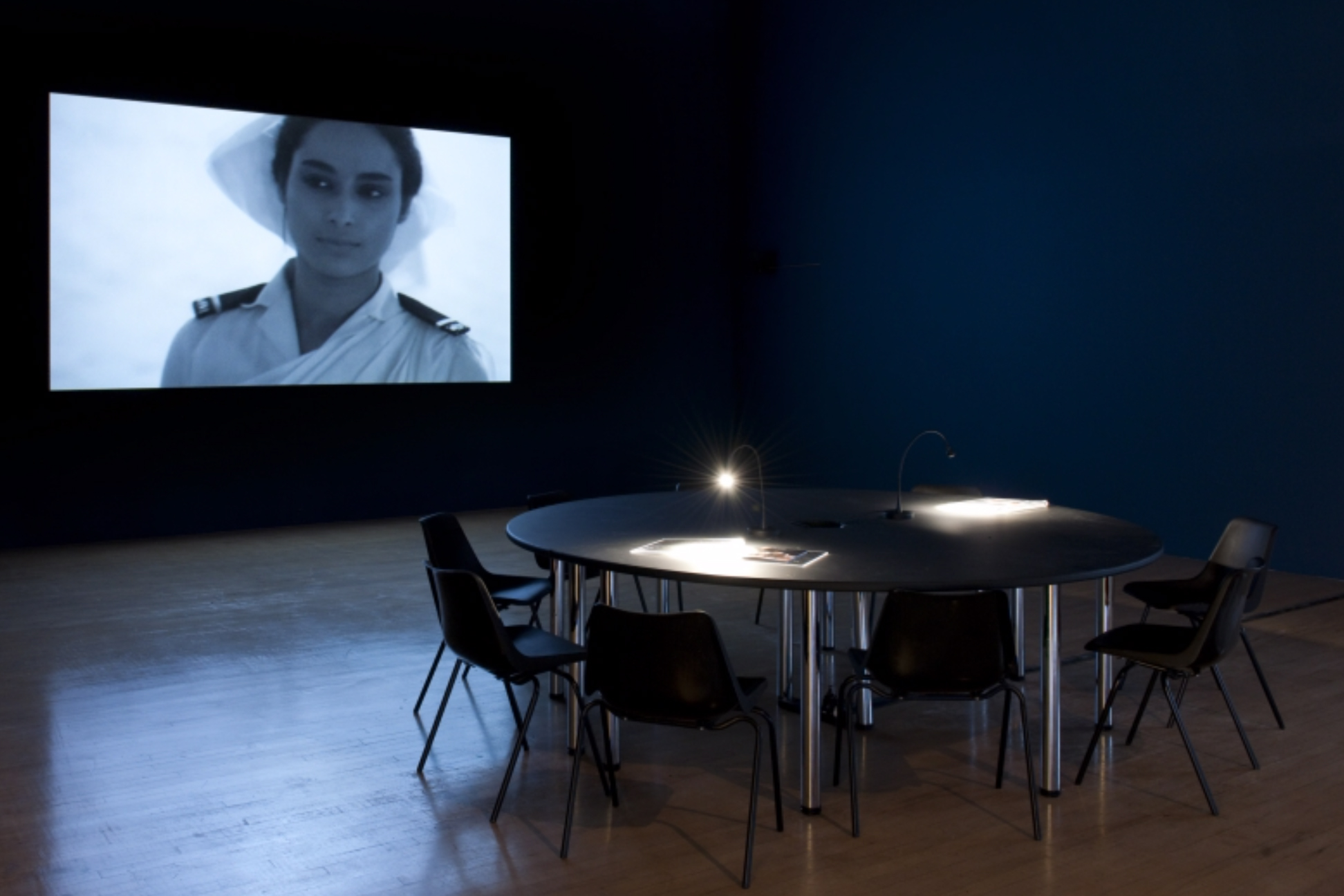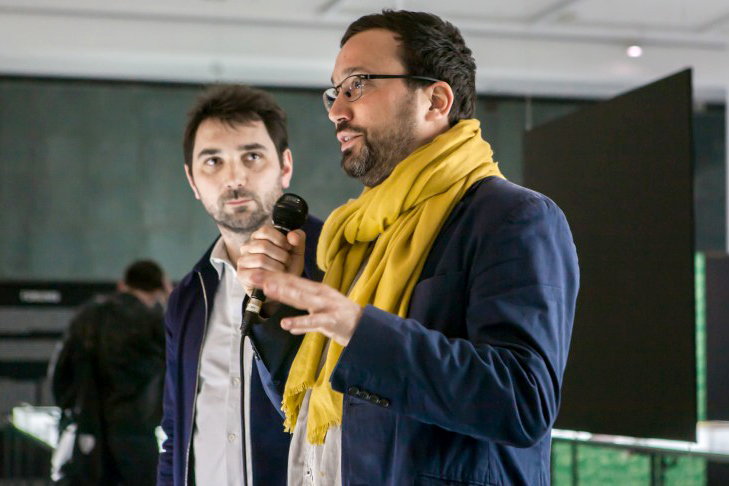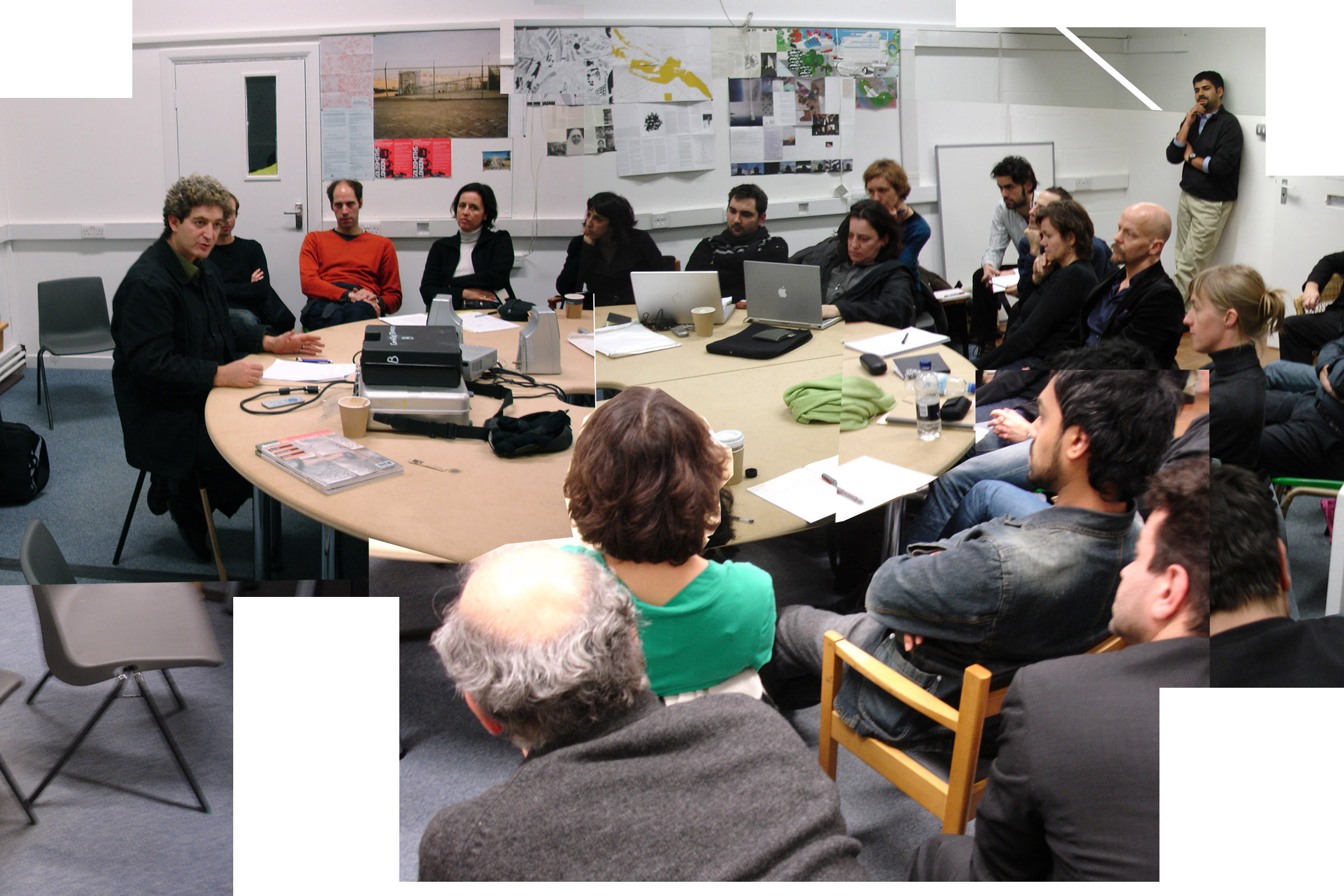



History
The Centre emerged out of an urgent necessity to open an alternative to, perhaps even a refuge from, architectural education constrained by a limiting conception of its practice and by the way its pedagogy was organised. Instead, it aimed to enable spatial practitioners to think of their skills and sensibilities as a field of knowledge: to regard architecture as structuring ways of seeing and to use spatial intelligence as a mode of understanding that could intervene in the world in multiple ways.
As an intellectual project, the Centre grew out of the interactions of different trajectories and patterns of thought, which started coalescing around the turn of the millennium. In the beginning of the 2000s, spatial and architectural theory started engaging with different practices and fields from art and curating to documentary film as well as post-colonial theory, sociology, visual and cultural studies. At the same time, current events shifted the focus of architectural pedagogy away from charting rapid processes of urbanisation in megalopolises, to understanding the urban dimension of the neo-colonial wars that erupted in Palestine, Iraq, and Afghanistan as well as the hyper-securitisation of cities in the global north. These events also called for a more hard-edged combination of political activism and investigative spatial practices. Our assumption was that such a transformation could not be achieved within existing academic structures but required the creation of a new field. This in turn would also necessitate the re-configuration of existing pedagogical frameworks capable of questioning the very ways that knowledge is produced, organised, and shared.
The Centre for Research Architecture is now a community that includes a practice-led PhD programme, two MA studios (Research and Forensic Architecture) and a research agency in Forensic Architecture. The PhD programme began in 2005 as a peer-to-peer learning experiment. At the time, a PhD in architecture was generally conceptualised as a degree in architectural history akin to the traditions of art history. We took the pedagogical skeleton of a PhD and operationalised it as a mode of practical inquiry. A group of colleagues – artists, curators, architects, filmmakers, editors, lawyers, and activists joined the experiment. We constructed a large round wooden table and placed it at the centre of our studio space where it still stands today. At one point the MAs transformed it with black chalkboard paint and so over the years this table has become the centrifugal force of our encounters and a diagram of our relations.
The first generation – or what we called Roundtable One – established the tone, foundational culture, sets of interests, and techniques that continue to define our work: architecture, documentary practices, conflict, territoriality, borders, environmental transformations, as well as the practice and critique of human rights alongside new modes of activism. We sought to augment critical theory or “critique” with the technical and aesthetic practice that is needed to assemble facts. Probing politics’ inner workings required suspicion of the authority of established truths and a peeling away of the layers of representation and mediation that organise such claims. We now had an operative theory, something akin to the Maoist conception of auto-critique that we could use to interrogate our own position as ‘architects’. Ours was a critical practice — but with the valence of “critical” suggesting something vital and dynamic rather than pointing to something as problematic.
The second phase of the transformation of the field of architecture was through Forensis. A new generation of students had now joined the Centre, and it was with them that we started discussing the theory and practice of “investigative aesthetics”. And it was here that Forensic Architecture emerged as an interaction between a group of peers who took the proposition of spatial practices into different directions yet again — into law, media, acoustics, ecology, infrastructures, and climate justice. At some point, a challenge became apparent: “why are we talking about forensics? Let’s just do it;” and we did it by forming a forensic agency. We started slowly but soon realised that we were onto something. Some of our most meaningful achievements took place in our first year: we helped a lawyer, use the “rights of nature” to stop the construction of a small section of the wall in Palestine, succeeded in banning the use of white phorous as an incendiary airborne weapon, brought global attention to drone strike victims in Pakistan, and investigated the death of migrants at sea. Ever since the Centre for Research Architecture and the Forensic Architecture agency have collaborated, developing synergies around the technologies and theories of what we call counter-forensics, whilst working together to try and formulate innovative methods for attending to the frictions between aesthetic and investigative modes of practice.
— Eyal Weizman, January 2021
Read about how “Research Architecture is Redefining Art” in the Guardian here
Learn more about our MA & PhD Programmes
The MA programme is for suitably qualified graduates from a range of disciplines wishing to pursue studio-based spatial research in the context of theoretical work. The PhD programme is aimed at spatial practitioners who would like to develop long-span practice-based research projects. The encompassing aim of research at both levels is to explore new possibilities generated by the extended field of architecture.
Centre For Research Architecture | Department of Visual Cultures | Goldsmiths, University of London | New Cross SE14 6NW
cra@gold.ac.uk